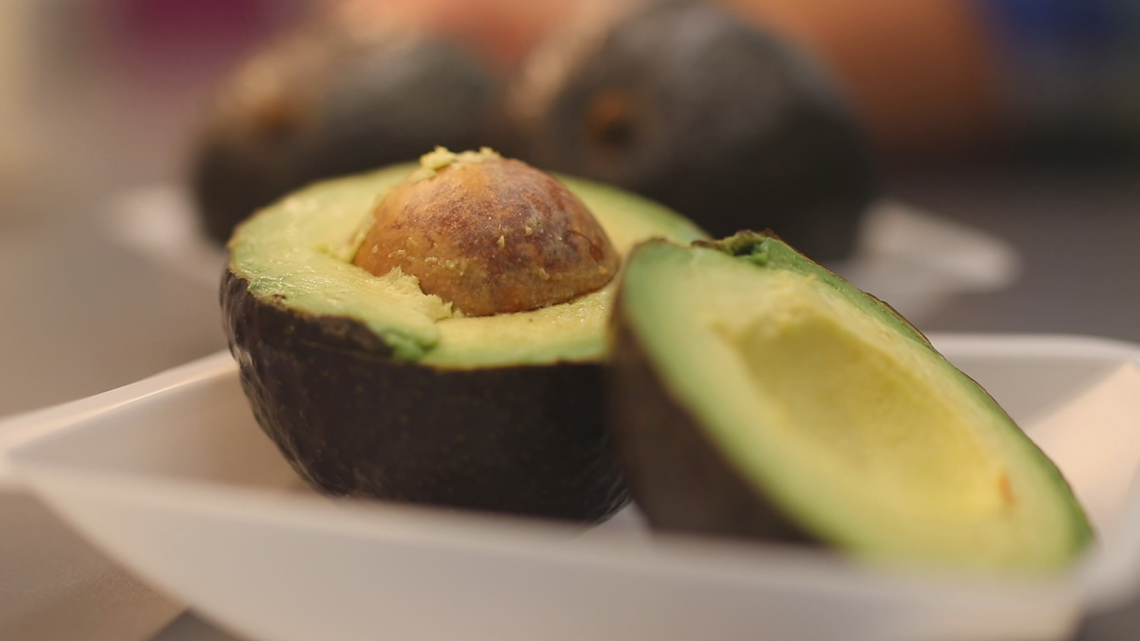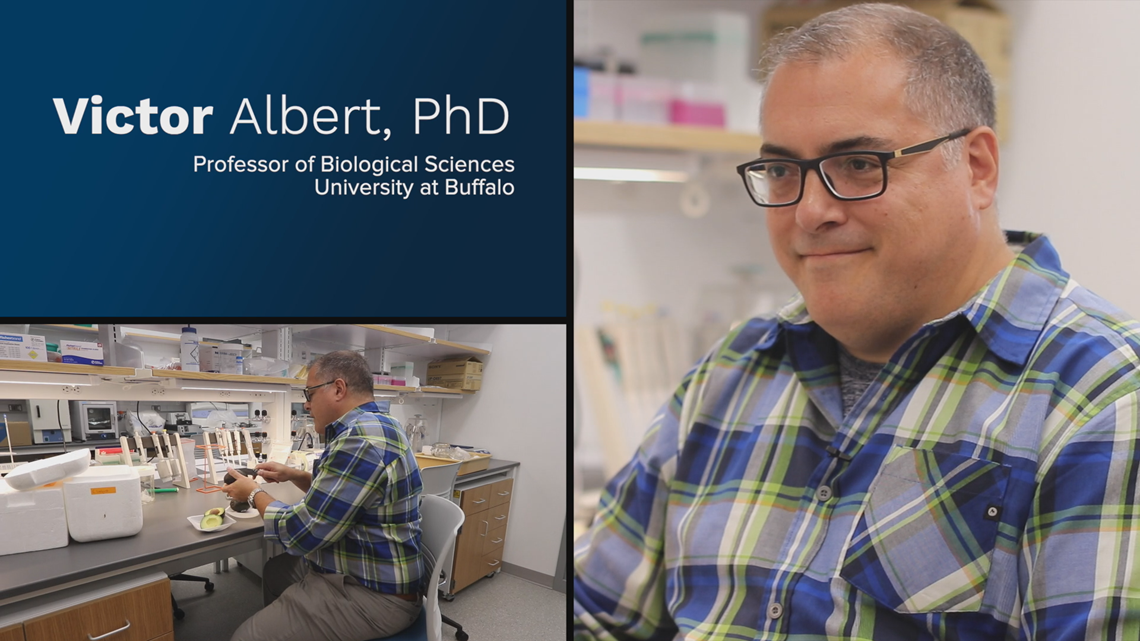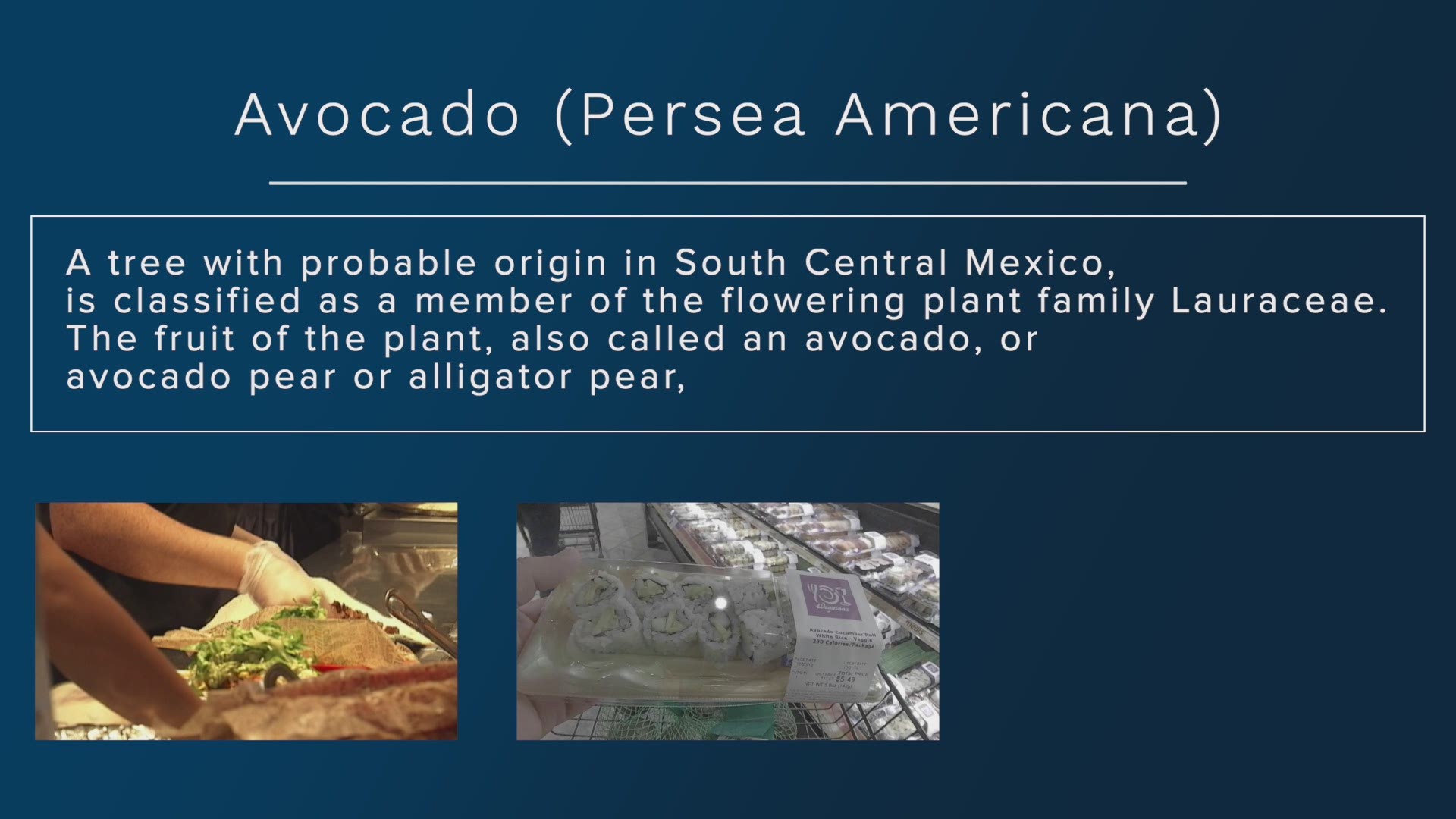BUFFALO, N.Y. — Scientists at the University at Buffalo have genetically sequenced the avocado.
Have we lost you yet?
Hang in there.
You love your avocados, don't you? But a combination of climate change, threats from pests, and fungus could impact their growth and viability in years to come. Genetic sequencing is required to get a better understanding of the fruit. Also, yes, an avocado is a fruit.
Avocados are also a huge agriculture sector. Nearly 6 million metric tons of avocados were grown around the world in 2017, with Mexico alone growing more than 33 percent of all avocados. The average American alone eats nearly eight pounds of avocados each year.
A commodity so precious to consumers is worth understanding a little bit more, isn't it?


What is genetic sequencing?
Genetic sequencing is the process of determining the order of nucleotides in DNA and used to determine the order of the four bases: adenine, guanine, cytosine, and thymine.
"You and I have about 3 billion of these letters," said Dr. Victor Albert, a professor of Biological Sciences at the University At Buffalo and the co-lead on the avocado genetic sequencing project. "An avocado has about 900 million of these letters, but these letters code for things like proteins, enzymes, and other such things."
Like Jurassic Park, minus all the destruction, rampage, and dinosaurs, scientists on Dr. Albert's team extracts DNA from avocados and computes the data.
"What can we decipher, when we look at these as T's and C's, is what makes one organism different from another," he said. "So it's been really interesting to me to try to understand the whole evolutionary diversification of plants.
By understanding how diverse an avocado grown in Mexico is different than an avocado grown in Australia or Chile, scientists can gain a better understanding of how avocados will change as their lineage grows.
What good will genetic sequencing do?
Why should researchers be spending time and money to extract and sequence an avocado?
Similar to the way scientists research human DNA, it's equally important for researchers to spend time learning what makes plants thrive or die. By learning what makes an avocado an avocado, scientists can work with farmers to breed climate or pest-resistant trees crops to thwart those challenges.
"Pest resistance is probably the most important thing in avocado breeding and non-avocado biotechnology," said Dr. Albert. "Because this is probably the biggest threat to avocado life in their main area of agriculture, which is Mexico."
Avocados are very similar to apple trees in the sense they require grafting branches to stumps in order to eventually get a hybrid fruit. Also similar to apple trees, their long growth cycle before bearing fruit makes them vulnerable to disease or pest. Grafting is a form of genetic modification that has been used by farmers for generations. Dr. Albert thinks these genetic modifications will continue, despite unverified fears that it's unnatural.
"The fear of genetically modified organisms is purely cultural. It has no basis and scientific reality, or health," he said.
While speaking in his lab, Dr. Albert was concerned about climate change and its impact on avocado crops.
"Climate change can lead to new pests, new threats," Dr. Albert said. "So it's less the issue of wanting to improve the fruit and more the issue of wanting to improve the plants, resistance to pests and climate change."
Dr. Albert hopes that by understanding the DNA of an avocado, farmers and scientists will be able to modify these crops to create a type of avocado that is resistant to the effect of climate change.
Could farmers in, say, the Carolinas, grow avocados one day?
"Avocados in the United States, they don't grow north of Florida and California," Dr. Albert said. "It's possible that you might be able to grow avocados in more temperate zones with some modification."


How is this going to impact you?
"It's not," Dr. Albert said, laughing. "At least not right away."
The research completed by Dr. Albert and the team is a breakthrough, but it will be at least 20 years before you see the fruits of the research on your grocer's shelf or farmers market.
"Because of the knowledge that we have gained here, can be used, for example, in this genome assisted breeding within the next couple of years, but then avocados take at least six years to mature," Dr. Albert said. "Oftentimes, people will want to make crosses of new avocado varieties, and then study how traits sorted out among the progeny."
For now, Avocados will remain the status quo on toast and brunch spots in the hip parts of cities across the country. Prices will continue to rise with demand: a 25-pound box cost you $37 in July of 2018 and over $80 in July 2019.
You won't feel the pinch of this research when you split open your next avocado. The avocado genome research was funded by SAGARPA/CONACYT, the Governors University Research Initiative of the State of Texas, the U.S. National Science Foundation, Horticulture Innovation Australia Ltd. and the Australian Bureau of Agricultural and Resource Economics and Sciences.
The University at Buffalo collaborated with Texas Tech and The National Laboratory of Genomics for Biodiversity (LANGEBIO) in Mexico.
For Dr. Albert, the work has been important and has left him and the team feeling a sense of accomplishment.
"There's been however many billion that have lived since the dawn of man, and I get to be the one that sequenced avocado."

